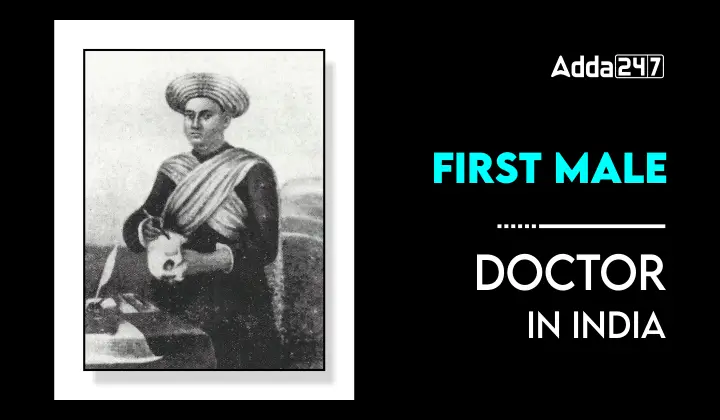India has a rich history of medicine and healing. During the British rule, becoming a doctor was a big challenge for Indians. Yet, one brave man made history by becoming the first Indian male to study and practice modern medicine. His journey inspired many others to follow the path of science and service. In this article, we will learn about this great personality.
Who was the First Male Doctor of India?
Pandit Madhusudan Gupta was India’s first male doctor. He was born in 1800 in West Bengal and first learned Ayurveda. Later, he studied modern medicine and became the first Indian to dissect a human body in 1836. This was a very important step because it helped introduce modern medical education and scientific learning in India, inspiring many future Indian doctors to study medicine professionally.
Basic Details of Pandit Madhusudan Gupta
- Birth date and place: 1800 at Baidyabati, Hoogly Bengal, British India
- Education: The Sanskrit College and University
- Occupation: Doctor
- Known for: 1st Male in India under Western medicine
- Institutions: Calcutta Medical College and Hospital
Early Life and Education
Gupta’s early life was marked by his rebellion against his family’s wishes to pursue education. Leaving home during his formative years, he later gained admission to the Ayurvedic class at the Sanskrit College in 1826. His natural aptitude for learning paved the way for his progression from a student to a teacher at the college by 1830.
Journey into Modern Medicine
While teaching at Sanskrit College, Madhusudan Gupta also attended lectures on Western medicine and anatomy. He listened to doctors like Tytler and John Grant. This was the start of his journey into learning the human body in the modern way.
He began translating medical books from English to Sanskrit. One famous book he translated was Hooper’s Anatomics’ Vade-Mecum, which he named Sariravidya (Science of the Body). This helped Indian students understand Western medicine in their own language.
The First Human Dissection in India
In 1835, Madhusudan Gupta was moved to Calcutta Medical College (CMC). This college was started to teach Indians about modern medicine. But there was once big problem – Indian students were afraid to dissect (cut open) dead bodies because it was against religious beliefs.
Madhusudan Gupta was brave. He convinced others that it was okay to study the human body for learning. After six months of preparation and secret planning, he performed India’s first human dissection in 1836. He did this under the guidance of a British doctor, Professor Henry Goodeve.
This was a big moment in Indian history. It helped open the doors for modern medical education in India.
Advocacy for Medical Achievements
Gupta became a vocal advocate for various improvements in medical practices. His participation in the General Committee of the Fever Hospital and Municipal Improvements led to recommendations for better maternal care, sanitation practices and the adoption of smallpox vaccination.
Contributions to Research
Gupta’s research on the age of puberty among Indian girls challenged prevailing myths and misconceptions. His findings not only contributed to the understanding of psychological differences but also highlighted the importance of cultural contexts in medical research.
Legacy
Pandit Madhusudhan Gupta’s impact on Indian medicine remains undeniable. His dedication to integrating tradition Indian practices with Western knowledge laid the foundation for modern medical education in India. Gupta’s contributions to medical translation, dissection and advocacy for improvements continue to shape medical practices in the country.



 Which City is known as the Science City ...
Which City is known as the Science City ...
 Which District of Punjab is known as the...
Which District of Punjab is known as the...
 Open-Source & Made for India: VoicER...
Open-Source & Made for India: VoicER...








